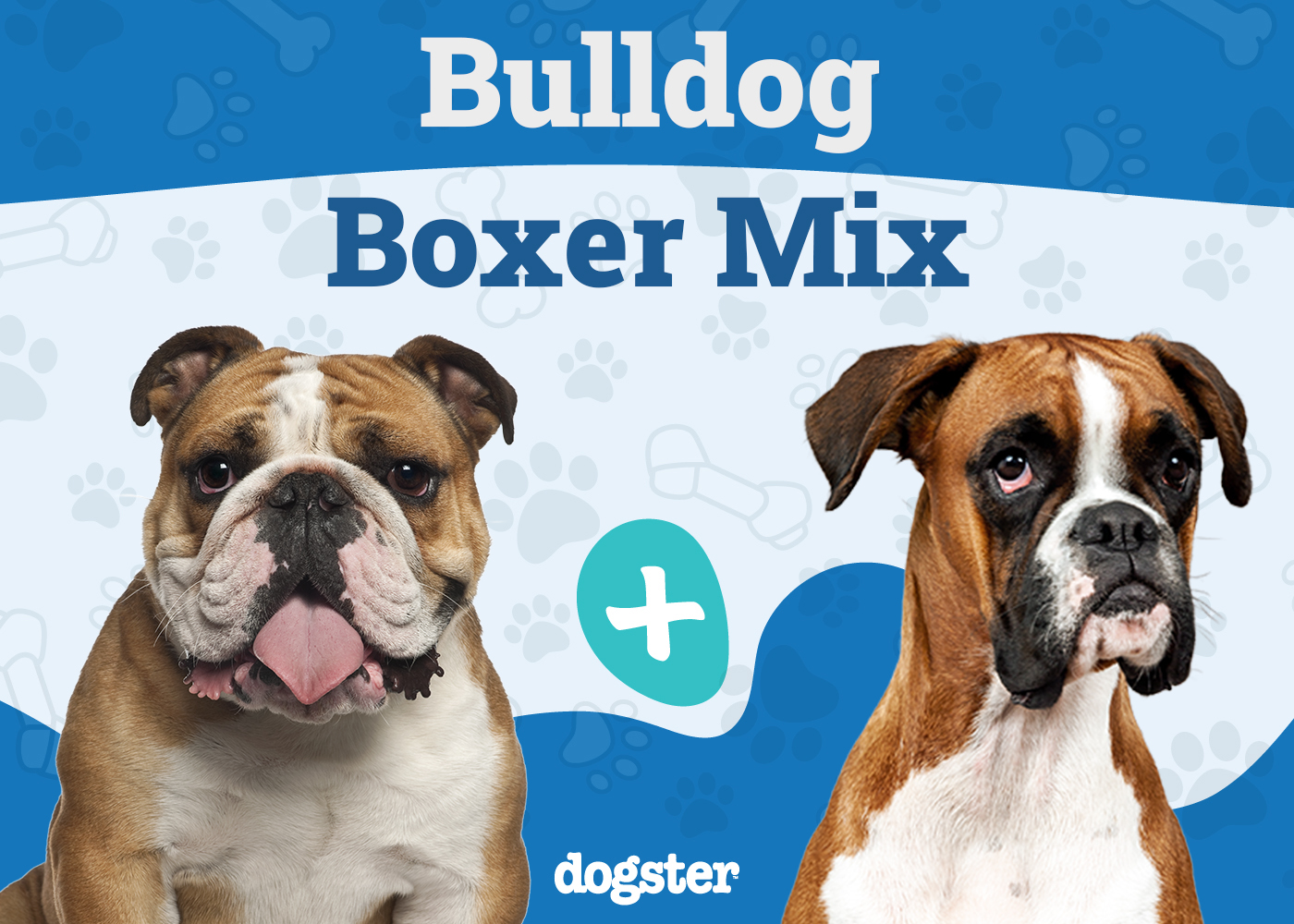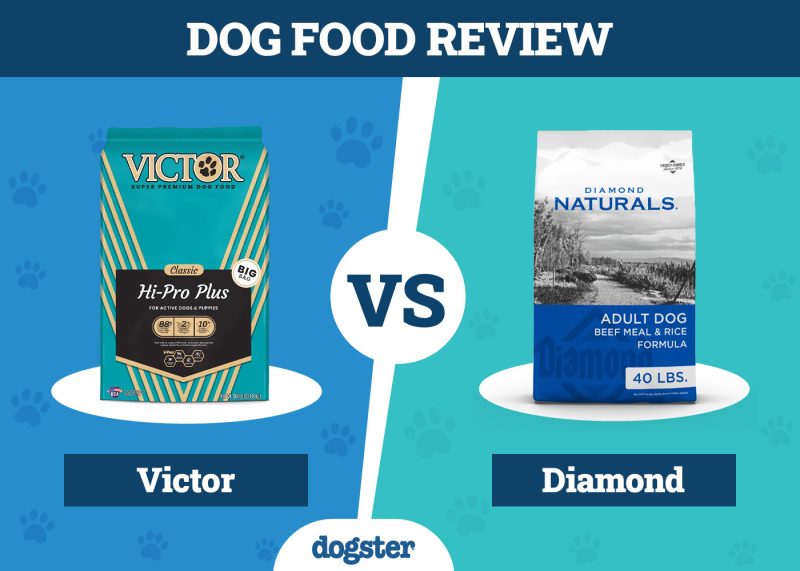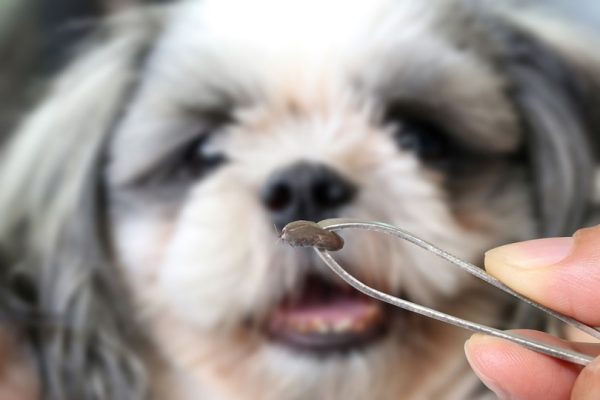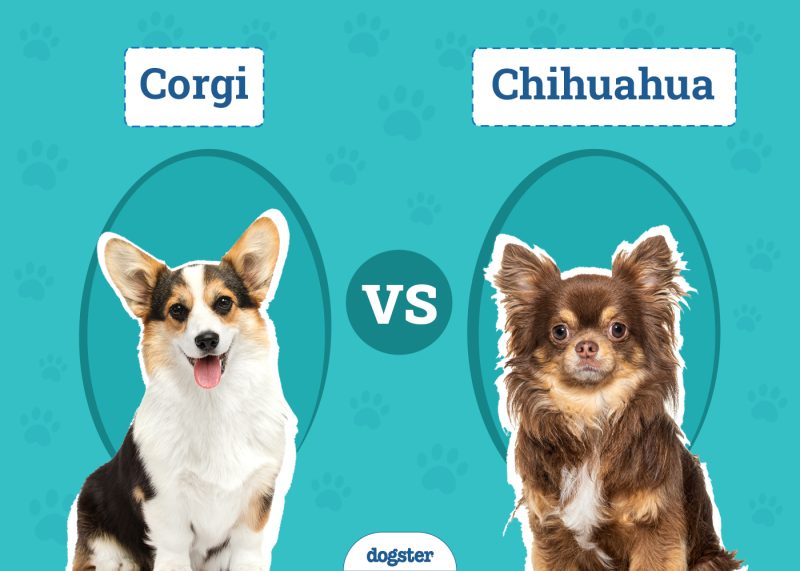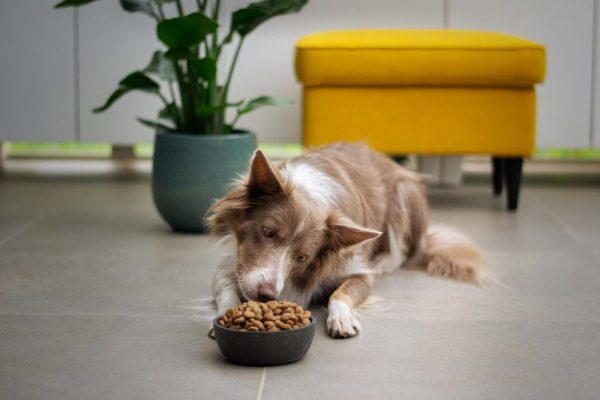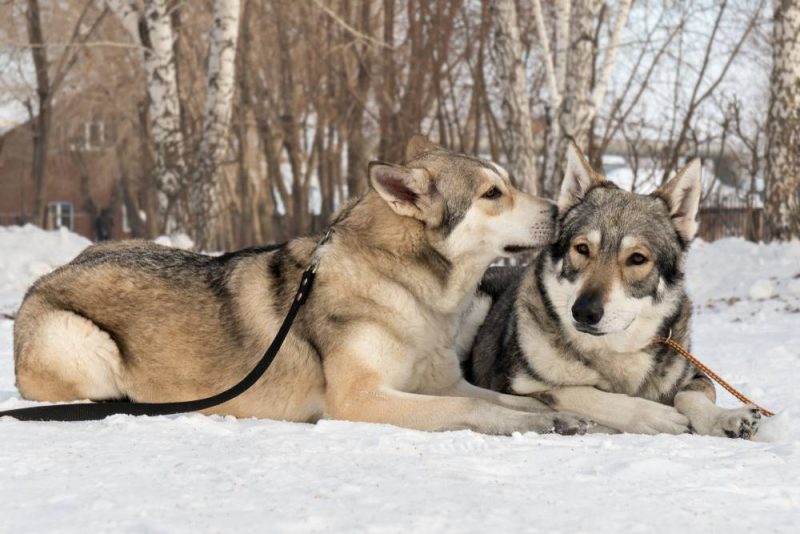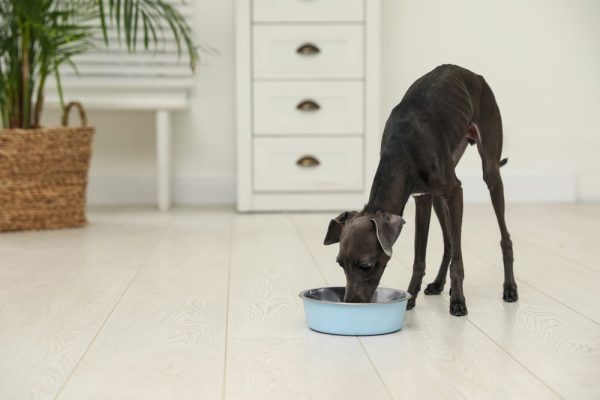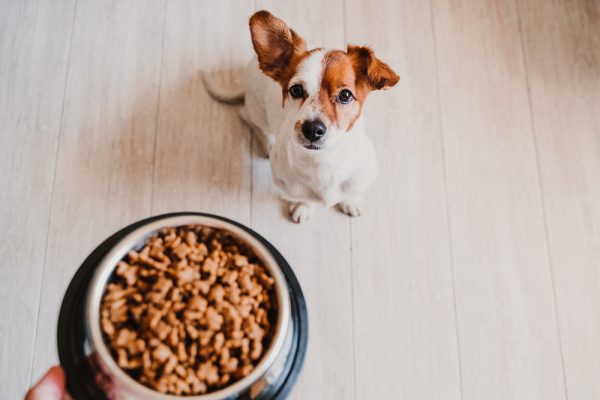In this article
View 8 More +If you’ve been looking for a dog that is loving, loyal, affectionate as they can be and intelligent to boot, then the Bull Boxer is the right choice for you. This lovable pet goes by many titles. This hybrid can be called the Pit Boxer, the American Bull Boxer, the Boxer Pit Bull mix, the Pitoxer, the Valley Bulldog, and the Pit Bull Boxer. The Bull Boxer is a hybrid breed between a Boxer and a Bulldog.
Breed Overview
Height
22–27 inches
Weight
50–80 pounds
Lifespan
10–15 years
Colors
Brown, black, tan, yellow
Suitable for
Very active families, people who are experienced with dogs
Temperament
Loyal, loving, intelligent, powerful, faithful, affectionate
As a mixed breed, the Bull Boxer inherits qualities from both parents and is a large dog with a lifespan of 10-15 years. Bull Boxers are extremely faithful, powerful, and great to have as guard dogs. The intelligence of this breed makes them fun to be around and play with.
However, as they are intelligent and energetic, they are best suited for families that are very active and people who have experience with dogs already. History shows that Bulldogs were once used as fighting dogs, which can give any dog with Bulldog blood in it a bad name. Once the fighting of these dogs was outlawed, they quickly became affectionate family pets that are loyal to a fault.
In the guide below, we’ll tell you everything you need to know about this loyal dog before you give one a forever home.
Bull Boxer Characteristics

Bull Boxer Puppies
Bull Boxer puppies, like their parents, are very active and energetic. Before you run out and adopt one of these adorable puppies, make sure that you have the energy to keep up with them. With their high level of intelligence, they’re very easy to train. They are eager to please their owners, but Bull Boxer puppies come with a stubborn streak as well.
They are healthy, robust, and have an average lifespan for a dog of that size. It’s best, however, to be careful when strangers and other dogs come to your home. Though Bull Boxers are friendly, they tend to be wary of people and dogs they feel aren’t familiar with.
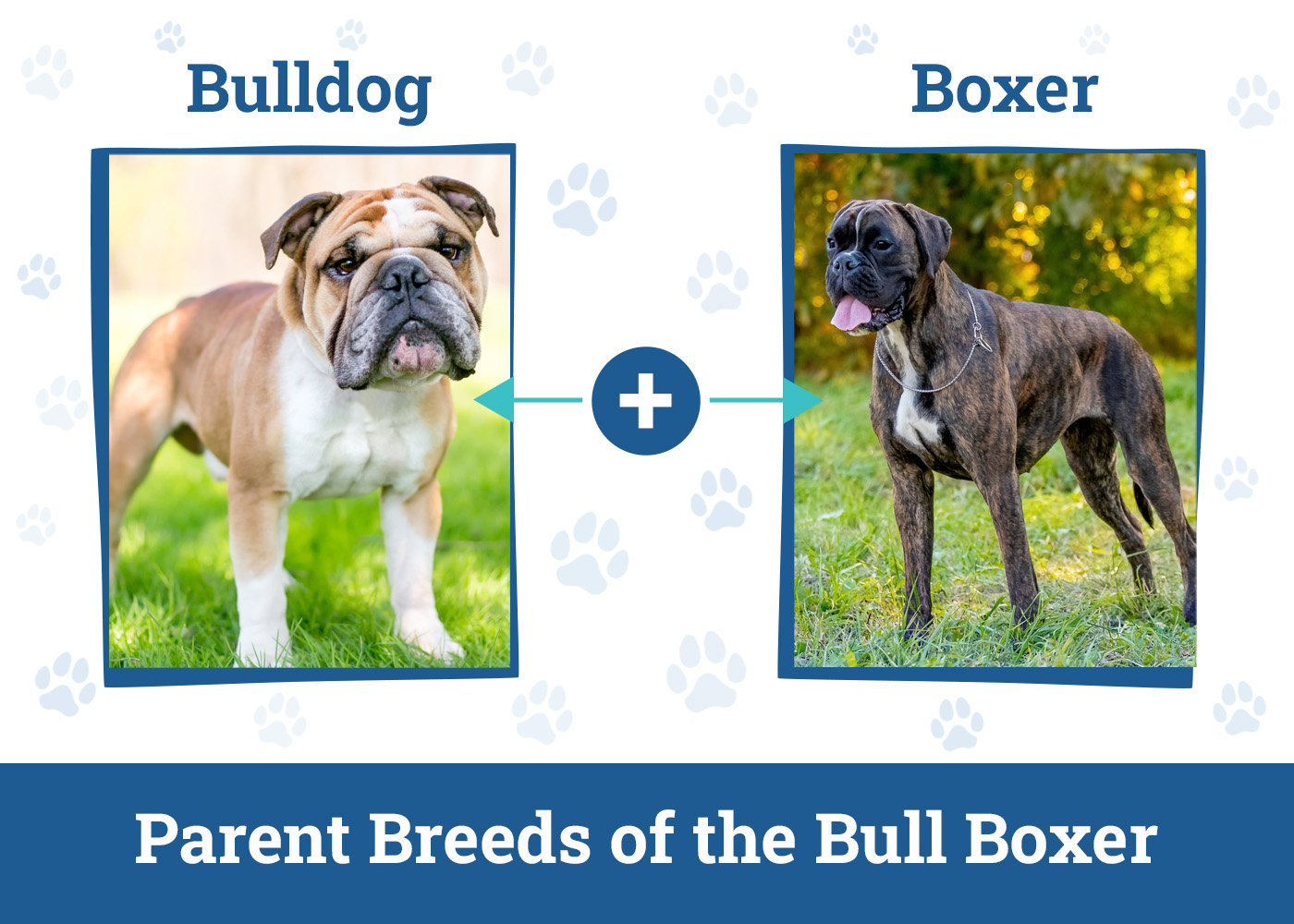
Temperament & Intelligence of the Bull Boxer 🧠
Since the Bull Boxer is a mix between a Bulldog and a Boxer, they tend to get the temperament of both parents. Of course, it’s not easy to predict which parent the puppy will take after as it grows. The Bull Boxer is intelligent and friendly, and they don’t like to be left alone for long periods of time. Intelligent enough to want to please their owner, the Bull Boxer does require a firm hand when it comes to training.
Are These Dogs Good for Families? 👪
Bull Boxers are excellent for families, especially ones who are active. They love spending time with kids. However, they do require supervision around children who are very small. While they’re very loving and loyal to their families, they are also protective regarding their families.
Does This Breed Get Along With Other Pets? 🐶 😽
As long as your Bull Boxer is taught socialization skills as a puppy, you should have no problems with them getting along with other pets. However, this mixed breed does have a high prey drive and often reacts to small animals running, with the instinct to run after them. That’s why it’s essential to socialize and train your Bull Boxer when they are puppies and keep up with that same training and socialization throughout their lives.

Things to Know When Owning a Bull Boxer
Owning a Bull Boxer will take time, money, and patience to make sure your dog is trained, socialized, healthy, and happy. Below, we’ll list a few things you should know before you decide to become a pet parent to a Bull Boxer puppy.
Food & Diet Requirements 🦴
Even though Bull Boxers are incredibly active, they don’t burn off the food they eat quite as quickly. As we said earlier in this guide, Bull Boxers love to eat, making it easy for them to overeat and become obese. It’s best to feed them two to three small meals a day instead of filling their bowls in the mornings and letting them eat whenever they feel like it.
If you feel that your dog is becoming overweight, speak to your vet about treatment and what can be done.
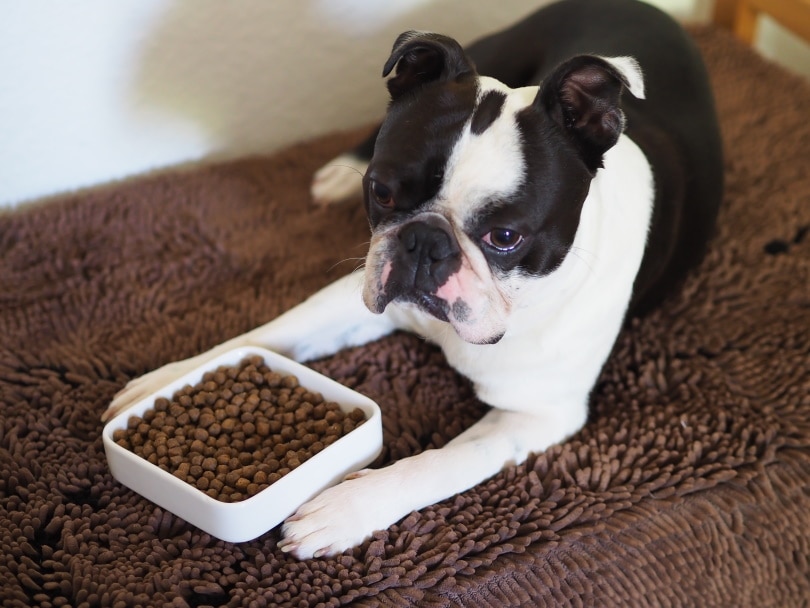
Exercise 🐕
You already know that your Bull Boxer is energetic and loves to play. Since this dog is very athletic, it’s vital that they get extensive exercise. As previously stated, walking your pet is a great way to exercise them, but they need a minimum of 2 hours of some type of activity daily. Whether it’s walking, playing fetch in the backyard, or running along beside you, it’ll help to get rid of some of your pet’s energy, keep them in good shape, and stop them from becoming bored. A bored Bull Boxer can quickly turn into a destructive Bull Boxer, so make sure you remember that.
Training 🎾
Since these dogs can be quite stubborn at times, it’s imperative that training and socialization start when they’re young. It’s best to use a reward system for training your Bull Boxer, as positive reinforcement is known to work well with them. As with any dog, patience, love, praise, and consistency are the keys to success.
Grooming ✂️
Since these dogs have short hair, grooming is pretty much a breeze. It is best to brush them once a week, as they tend to shed quite a bit. As for giving your Bull Boxer a bath, use only the highest-quality shampoo and only bathe them once a month, unless they get into something where you have to.
Since they have floppy ears, it’s important to keep up with cleaning them well in case of a buildup of wax and oils. If you start brushing your dog’s teeth and trimming their nails when they’re puppies, they’ll be used to it and shouldn’t give you a problem with the task when they get older.
Health and Conditions ❤️
In most cases, mixed breeds are actually healthier than their pure breed counterparts. The Bull Boxer is no exception. Since they are considered a newer breed, there aren’t many health problems to contend with. We will go into the serious and minor health conditions you should keep an eye out for in your Bull Boxer in the next section.
- Twisted spleen
- Corneal disease
- Hypothyroidism
- Colitis
- Skin allergies
- Hip dysplasia
- Spinal cord disease
- Heart disease
- Brain tumors
- Eye problems
Your Bull Boxer could inherit a few serious conditions from their parents, such as hip dysplasia, spinal cord disease, heart disease, brain tumors, and problems with their eyesight, such as cataracts.
However, since your dog is a mixed breed hybrid and not nearly as likely to develop these conditions as purebreds would be, it is still a good idea to have your vet keep an eye on your pet and do tests if they suspect one of the serious conditions above.
Minor conditions that your pet might inherit from their parents include a twisted spleen, corneal disease, hypothyroidism, and colitis. Skin allergies can become a problem as well, so make sure you keep an eye out and let your vet know if you see any of the above issues with your pet. They will do tests to determine if they have the conditions and prescribe a treatment plan to take care of them.

Male vs. Female
The female of the Bull Boxer breed is usually from 16 to 19 inches in height, whereas the male of the breed averages from 17 to 20 inches. The female weighs in at around 50 to 70 pounds, with the male coming in from 60 to 80 pounds, instead.
If you’re not considering breeding your female, it is best to have her spayed, even though the procedure for females is a bit more complicated than it is for the males of the breed.
The only other difference you need to know between the male and female Bull Boxer is that there may be a difference in temperament and how they behave. It has been said that female Bull Boxers are friendlier and less aggressive than their male counterparts are. However, that hasn’t been proven and, in most cases, comes down to the training and socialization the dog has and how good the owners are.
3 Little-Known Facts About the Bull Boxer
1. They Require a Lot of Physical Activity
As your Bull Boxer grows, so will the amount of exercise they need to stay healthy and not get bored. As mentioned previously, Bull Boxers are energetic and playful, so you need to be willing to exercise with them. A brisk 1-hour walk for your adult Bull Boxer twice a day should keep them healthy and feeling fine.
2. They Can Easily Become Overweight
As your Bull Boxer grows, they’re going to love to eat more and more, which means they’ll eat whenever you give them food. Overeating can easily lead to your dog becoming obese, so make sure to follow whatever feeding suggestions your vet gives you.
3. They Can Be Protective
If trained and treated well, Bull Boxers are some of the friendliest dogs around. However, they can be protective of their owners, which makes them excellent guard dogs.

Final Thoughts
The Bull Boxer is an excellent combination of a dog that is friendly and courageous. They are also fit and fearless while still being courageous and cuddly. All of these traits are good traits to have in a dog that you’re going to have around children and need to guard your family.
Combining two great dogs such as the Boxer and the Bulldog guarantees you’re going to end up with a dog with good qualities, in most cases.
While the Bull Boxer isn’t right for someone who has never had a dog before, if you have an active life, plenty of time and determination to train them, and a lot of love and patience, the Bull Boxer will make you a loyal, loving companion for life.
Find out more about other popular dog breeds:
